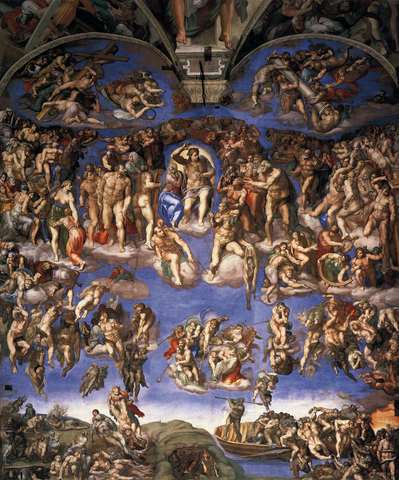Liturgical diversity for saints & souls
 It is easy to think that uniformity is more valuable than diversity in unity. Through the centuries the Church in Rome allowed for different liturgical calendars to flourish which sort of exists down until today. AND this is the beauty of being Catholic. Lest we forget, the Church Universal allows for a variety of liturgical observances in local churches and religious orders in addition to the ones designated for the “person in the pew” by the Supreme Pontiff in the Roman Missal. Life does not need to be so restricted to think one way is better or more exclusive than the another. For example, consider the various observances of All Saints and All Souls noted below (if I am missing a group let me know). Benedictines and Dominicans celebrate All Saints and All Souls on November 1 & 2 respectively and days dedicated to the saints and souls of their religious families.
It is easy to think that uniformity is more valuable than diversity in unity. Through the centuries the Church in Rome allowed for different liturgical calendars to flourish which sort of exists down until today. AND this is the beauty of being Catholic. Lest we forget, the Church Universal allows for a variety of liturgical observances in local churches and religious orders in addition to the ones designated for the “person in the pew” by the Supreme Pontiff in the Roman Missal. Life does not need to be so restricted to think one way is better or more exclusive than the another. For example, consider the various observances of All Saints and All Souls noted below (if I am missing a group let me know). Benedictines and Dominicans celebrate All Saints and All Souls on November 1 & 2 respectively and days dedicated to the saints and souls of their religious families.
The Observance of All Saints and Blesseds in Various Orders
November 5, Society of Jesus
November 7, Order of Preachers
November 13, Augustinians, Benedictines, Cistercians, Order of Prémontré
November 14, Order of Carmelites Discalced & Order of Carmelites
November 29, Franciscan Family
The Commemoration of All Souls in Various Orders
November 3, Society of Jesus
November 8, Order of Preachers
November 13, Carthusians
November 14, Benedictines, Cistercians
November 15, Order of Carmelites Discalced & Order of Carmelites
November 25, Franciscan Family
REQUIEM aeternam dona eis, Domine, et lux perpetua luceat eis. Requiescant in pace. Amen.
Russia’s Fortified Tabernacles
 One Magazine, the monthly of the Catholic Near East Welfare Association has a brief but very good article on Orthodoxy in Russia and a spectacular multimedia presentation of Orthodox churches. Please read the article and watch the slide show, it’s all worth it.
One Magazine, the monthly of the Catholic Near East Welfare Association has a brief but very good article on Orthodoxy in Russia and a spectacular multimedia presentation of Orthodox churches. Please read the article and watch the slide show, it’s all worth it.
What lesson is Cardinal Newman teaching us today?
A few paragraphs of a homily from a Mass at the Birmingham Oratory for transfer of remains of Cardinal Newman
It is surely the lesson the month of November speaks to us about: it is the lesson that our
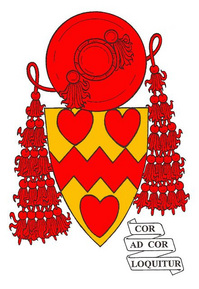 common end, be we who we may, is death and decay and the dissolution of all things. The month begins with All Saints and All Souls: we will all be swept up into that great mass of all the faithful departed, and we hope to become, sooner or later, one with the saints of God. But November ends with the Feast of Christ the King to remind us who it is we must love and serve, to remind us whose is the Kingdom to which we truly belong, to remind us whose gentle and all persuasive rule calls us from the transitoriness of this life to the glory of the life of the Resurrection. That path to the Kingdom is not always easy: as Cardinal Newman himself wrote: “All God’s providences, all God’s dealings with us, all his judgments, mercies, warnings, deliverances, tend to peace and repose as their ultimate issue … after our souls’ anxious travail; after the birth of the spirit; after trial and temptation; after sorrow and pain; after daily dyings to the world; after daily risings unto holiness; at length comes that ‘rest which remaineth unto the people of God’. After the fever; after weariness and sicknesses; fightings and despondings, languor and fretfulness; struggling and failing, struggling and succeeding; after all the changes and chances of this troubled unhealthy state, at length comes death, at length the white throne of God, at length the Beatific Vision.”
common end, be we who we may, is death and decay and the dissolution of all things. The month begins with All Saints and All Souls: we will all be swept up into that great mass of all the faithful departed, and we hope to become, sooner or later, one with the saints of God. But November ends with the Feast of Christ the King to remind us who it is we must love and serve, to remind us whose is the Kingdom to which we truly belong, to remind us whose gentle and all persuasive rule calls us from the transitoriness of this life to the glory of the life of the Resurrection. That path to the Kingdom is not always easy: as Cardinal Newman himself wrote: “All God’s providences, all God’s dealings with us, all his judgments, mercies, warnings, deliverances, tend to peace and repose as their ultimate issue … after our souls’ anxious travail; after the birth of the spirit; after trial and temptation; after sorrow and pain; after daily dyings to the world; after daily risings unto holiness; at length comes that ‘rest which remaineth unto the people of God’. After the fever; after weariness and sicknesses; fightings and despondings, languor and fretfulness; struggling and failing, struggling and succeeding; after all the changes and chances of this troubled unhealthy state, at length comes death, at length the white throne of God, at length the Beatific Vision.”
The lesson we must learn is that, as the Cardinal also said: “He knows what He is about”, and that life’s trials and difficulties, its joys and its beauty all have the object of shaping us to be friends with God, to be at one with Our Lord: this is the aim and purpose of life. That is what John Henry Newman put into practice his whole life-long; it is what he taught others to do, it is what he is calling us to do today.
Cardinal Newman has left us but few earthly remains as focal points for our devotion, as if, and quite explicitly, to point us to that higher goal as a son of St Philip should to lead us away from himself and, as he put it in his hymn to St Philip, “towards the bright palace where our God is present throned in high heaven.” That is what we would want for us as for himself, and the poignancy of his all but empty grave speaks loudly of it.
The Very Reverend Father Paul Chavasse, Provost of the Birmingham Oratory and Postulator for the Cause for the Beatification and Canonisation of the Venerable John Henry Cardinal Newman, delivered this homily on Sunday, November 2, 2008. For the full text see it here.
Saint Charles Borromeo
“The Lord led the just in right paths. And the Lord showed him the kingdom of God.”
[Saint Charles Borromeo’s (1538-1584)] love is good, simple, and at the same time intense. He loves God like a child, and he takes it for granted that one ought to bring everything to God. But then he has a certain system of love, which is certainly beautiful but also a bit complicated. He brings all his worries and everything that occupies him, and lays it before God. And he often commends it to him with vehemence. He also often simply allows it to ripen under God’s gaze. And at first he leaves it to his own intuition how he ought to treat the things he brought before God in order for God to accept them (emphasis mine; von Speyr, Book of All Saints, 2008).
We beseech Thee, O Lord, keep Thy Church under the continual protection of Saint Charles Thy Confessor and Bishop; and as his pastoral care made him glorious, so may we through his intercession every grow in fervor of love for Thee.
Benedictine All Souls
And making a gathering, he [Judas] sent twelve thousand drachms of silver to Jerusalem for sacrifice to be offered for the sins of the dead, thinking well and religiously concerning the resurrection, (For if he had not hoped that they that were slain should rise again, it would have seemed superfluous and vain to pray for the dead,) And because he considered that they who had fallen asleep with godliness, had great grace laid up for them. It is therefore a holy and wholesome thought to pray for the dead, that they may be loosed from sins. (2 Maccabees 12:43-46)
 On All Souls Day I joined the community of monks here at Saint Mary’s Abbey for the annual and traditional prayers at the cemetery. There the gathered monks read aloud more than 100 names of the deceased confreres buried in the two cemeteries (here and in East Orange, NJ) since the founding of the abbey in 1857. After each set of names was read aloud we sang the Kyrie. At the conclusion we sang the traditional hymn at the burial of a monk in the American Cassinese Congregation, the “Ultima” (see below). It was a terse but moving experience especially since this was a time in which many of the monks remembered their friends who have gone before them marked with the sign of faith.
On All Souls Day I joined the community of monks here at Saint Mary’s Abbey for the annual and traditional prayers at the cemetery. There the gathered monks read aloud more than 100 names of the deceased confreres buried in the two cemeteries (here and in East Orange, NJ) since the founding of the abbey in 1857. After each set of names was read aloud we sang the Kyrie. At the conclusion we sang the traditional hymn at the burial of a monk in the American Cassinese Congregation, the “Ultima” (see below). It was a terse but moving experience especially since this was a time in which many of the monks remembered their friends who have gone before them marked with the sign of faith.
Ultima in mortis hora, When death’s hour is then upon us,
Filium pro nobis ora, To your Son pray that he grant us,
Bonam mortem impetra, Death, both holy and serene,
Virgo, Mater, Domina. Virgin Mary, Mother, Queen.
A prayer you may offer at the cemetery when visiting your friends and relatives:
Almighty God and Father, by the mystery of the cross, you have made us strong; by the sacrament of the resurrection you have sealed us as your own. Look kindly upon your servants, now freed from the bonds of mortality, and count them among your saints in heaven. We ask this through Christ our Lord. Amen.
Into your hands, O Lord, we humbly entrust our brothers and sisters. In this life you embraced them with your tender love; deliver them now from every evil and bid them enter eternal rest.
Saint Martin de Porres
Blessed Pope John XXIII said of Saint Martin de Porres:
 Saint Martin, always obedient and inspired by his divine teacher, dealt with his brothers and with that profound love which comes from pure faith and humility of spirit. He loved men and because he honestly looked on them as God’s children and as his own brothers and sisters. Such was his humility that he loved them even more than himself, and considered them to be better and more righteous than he was.
Saint Martin, always obedient and inspired by his divine teacher, dealt with his brothers and with that profound love which comes from pure faith and humility of spirit. He loved men and because he honestly looked on them as God’s children and as his own brothers and sisters. Such was his humility that he loved them even more than himself, and considered them to be better and more righteous than he was.
He did not blame others for their shortcomings. Certain that he deserved more severe punishment for his sins than others did, he would overlook their worst offenses. He was tireless in his efforts to reform the criminal, and he would sit up with the sick to bring them comfort. For the poor he would provide food, clothing and medicine. He did all he could to care for poor farmhands, blacks, and mulattoes who were looked down upon as slaves, the dregs of society in their time. Common people responded by calling him, “Martin the charitable.”
He excused the faults of others. He forgave the bitterest injuries, convinced that he deserved much severer punishments on account of his own sins. He tried with all his might to redeem the guilty; lovingly he comforted the sick; he provided food, clothing and medicine for the poor; he helped, as best he could, farm laborers and Negroes, as well as mulattoes, who were looked upon at that time as akin to slaves: thus he deserved to be called by the name the people gave him: ‘Martin of Charity.’
A good overview of Saint Martin’s life can be read here.
O God, the rewarder of the humble, you raised up the blessed confessor Martin to the kingdom of heaven. May his merits and prayers help us to imitate his humility on earth that we may be exalted with him in heaven.
Do you desire eternal life?
Dear brothers and sisters!
Yesterday, on All Saints’ Day, we dwelt upon “the heavenly city, Jerusalem, our mother” (Preface of All Saints). And today, our souls turn again to these last things as we commemorate all the faithful departed, those “who have gone before us marked with the sign of faith and sleep in peace.” It’s very important for us Christians to live our relationship with the dead in the truth of faith, and to look at death and the afterlife in the
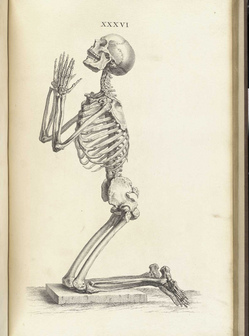 light of Revelation. Already the Apostle Paul, writing to the first communities, exhorted the faithful to “not be downhearted, like the others who have no hope.” “If in fact” he wrote, “we believe that Jesus died and rose, so also God, by means of Jesus, will gather up with him all those who have died” (1 Thes 4:13-14). It’s necessary even today to spread the message of the reality of death and eternal life — a reality particularly subject to superstitious and syncretic beliefs, for the Christian truth cannot risk itself to be mixed up with mythologies of various sorts.
light of Revelation. Already the Apostle Paul, writing to the first communities, exhorted the faithful to “not be downhearted, like the others who have no hope.” “If in fact” he wrote, “we believe that Jesus died and rose, so also God, by means of Jesus, will gather up with him all those who have died” (1 Thes 4:13-14). It’s necessary even today to spread the message of the reality of death and eternal life — a reality particularly subject to superstitious and syncretic beliefs, for the Christian truth cannot risk itself to be mixed up with mythologies of various sorts.
In my encyclical on Christian hope, I myself investigated the mystery of eternal life. I asked: even for the men and women of today, the Christian faith is a hope that can transform and sustain their lives? Even more radically: the men and women of our time likewise desire eternal life? Or maybe their earthly existence has become their only horizon? In reality, as St Augustine already observed, everyone wants the “blessed life,” that happiness. We don’t know what it is or what it’s like, but we feel ourselves attracted toward it. This is a universal hope, shared by people of all times and places. The expression “eternal life” gives a name to this insuppressible expectation: not a progression without end, but the immersion of oneself in the ocean of infinite love, where time, the beginning and end exist no more. A fullness of life and of joy: it’s this for which we hope and await from our being with Christ.
Let us today renew our hope in eternal life, one really drawn in the death and resurrection of Christ. “I am risen and now I am always with you,” the Lord tells us, and my hand sustains you. Wherever you might fall, you will fall in my hands and I will be present even at the gate of death. Where none can accompany you any longer and where you can bring nothing, there I await you to transform for you darkness into light. Christian hope is never something merely individual, it’s always a hope for others. Our lives are deeply linked, one to another, and the good and bad each one does always impacts the rest. So the prayer of a pilgrim soul in the world can help another soul that continues purifying itself after death. And for this, today the church invites us to pray for our beloved dead and to spend time at their tombs in the cemeteries. Mary, star of hope, make stronger and more authentic our faith in eternal life and sustain our prayer of suffrage for our departed brothers.
Benedictus XVI PP
Dies Irae
Day of wrath, day that
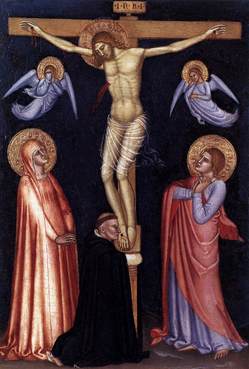 will dissolve the world into burning coals,
will dissolve the world into burning coals,
as David bore witness with the Sibyl.
How great a tremor is to be,
when the judge is to come
briskly shattering every (grave).
A trumpet sounding an astonishing sound
through the tombs of the region
drives all (men) before the throne.
Death will be stunned and (so) will Nature,
when arises (man) the creature
responding to the One judging.
The written book will be brought forth,
in which the whole (record of evidence) is contained
whence the world is to be judged.
Therefore when the Judge shall sit,
whatever lay hidden will appear;
nothing unavenged will remain.
O Thou, God of Majesty,
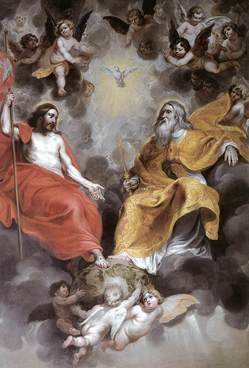 nourishing brilliance of the Trinity,
nourishing brilliance of the Trinity,
join us with the Blessed.
What am I the wretch then to say?
what patron I to beseech?
when scarcely the just (man) be secure.
King of tremendous Majesty,
who saves those-to-be-saved free,
save me, Fount of piety.
Remember, faithful Jesus,
because I am the cause of your journey:
do not lose me on that day.
Thou has sat down as one wearied seeking me,
Thou has redeemed (me) having suffered the Cross:
so much labor let it not be lost.
Just judge of the avenging-punishment,
work the gift of the remission (of sins)
before the Day of the Reckoning.
I groan, as the accused:
my face grows red from (my) fault:
spare (this) supplicant, O God.
O Thou, God of Majesty,
nourishing brilliance of the Trinity,
join us with the Blessed.
Thou who forgave Mary [the sinful woman],
and favorably heard the (good) thief,
hast also given me hope.
My prayers are not worthy,
but do Thou, Good (God), deal kindly
lest I burn in perennial fire.
Among the sheep offer (me) a place
and from the goats sequester me,
placing (me) at (Thy) right hand.
After the accursed have been silenced,
given up to the bitter flames,
call me with the blest.
Kneeling and bowed down I pray,
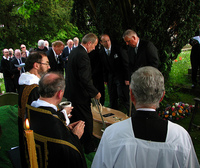 My heart contrite as ashes:
My heart contrite as ashes:
Do Thou {, my End,} care for my end.
That sorrowful day,
on which will arise from the burning coals
Man accused to be judged:
therefore, O God, do Thou spare him.
Faithful Lord Jesus,
grant them rest. Amen.
O Thou, God of Majesty,
nourishing brilliance of the Trinity,
join us with the Blessed. Amen.
All Souls
The Commemoration of all the Faithful Departed -All Souls–follows the Solemnity of All Saints. The Church’s remembrance of our deceased friends and loved dates back to Saint Isidore of Seville’s Rule for Monks but it wasn’t until the monks of the Abbey of Cluny under the leadership of Abbot Odilio, who in 998 ordered all the Cluniac houses to observe a day in which the dead were prayerfully remembered. By the 13th century the custom was extended to the entire Church in the West; the Churches in the East have a similar day depending on what ecclesiastical community we are talking about. The custom of singing the Dies Irae set the tone and theology of this observance; today one rarely hears the Dies Irae sung in parishes because it is considered a “downer” and thus completely neglecting what the hymn says; it seems, however, to be making a come-back (even the 1928 BCP included the Dies Irae post World War I) as an apt expression of grief rooted not in civil secularity but in theology reminding faithful that we neither make not sustain ourselves. This feast like all other liturgical feasts points to God and to his love and mercy more than to us and our to condition.
An excerpt of an oration of Saint Gregory of Nazianzus
“What is man that you should be mindful of him, mere mortal that you should care for him?” What is this new mystery confronting me? I am both small and great, both lowly and exalted, mortal and immortal, earthly and heavenly. I am to be buried with Christ and rise again with him, to become a co-heir with him, a son of God, and indeed God himself.
This is what the great mystery means for us; this is why God became man and became poor for our sake: it was to raise up our flesh, to recover the divine image in us, to re-create mankind, so that all of might become one in Christ who perfectly became in us everything that he is himself. So we are no longer to be “male and female, barbarian and Scythian, slave and free” -distinctions deriving from the flesh–but to bear within ourselves only the seal of God, by whom and for which we were created. We are to be so formed and molded by him that we are recognized as belonging to his one family.
If only we could be now what we hope to be, by the great kindness of our generous God! He asks so little and gives so much in this life and in the next, to those who love him sincerely. In a spirit of hope and out of love for God, let us then “bear and endure all things” and give thanks for everything that befalls us, since even reason can often recognize these things as weapons to win salvation. Meanwhile let us commend to God our own souls and the souls of those who, being more ready for it, have reached the place of rest before us although they walked the same road as we do now.
Lord and creator of all, and especially of your human creatures, you are the God and Father and rule of your children; you are the Lord of life and death; you are the guardian and benefactor of our souls. You fashion and transform all things in their due season through your creative Word, as you know to be best in your deep wisdom and providence. Receive this day those who have gone ahead of us in our journey from this life.
(Gregory of Nazianzus, Oration 7, 23-24; PG 35, cols 786-7; ET by ICEL)
V. From the gate of hell.
R. Deliver their souls, O Lord.
V. May they rest in peace.
R. Amen.
V. O Lord, hear my prayer.
R. And let my cry come unto Thee.
V. The Lord be with you.
R. And with your spirit.
Let us pray.
O God, Creator and Redeemer of all the faithful, grant to the souls of Thy servants and handmaids the remission of all their sins, that through our devout prayers they may obtain pardon which they have always desired. Who lives and reigns with God the Father in the unity of the Holy Spirit, God, world without end. Amen.
V. Eternal rest grant unto them, O Lord.
R. And let perpetual light shine upon them. Amen.


